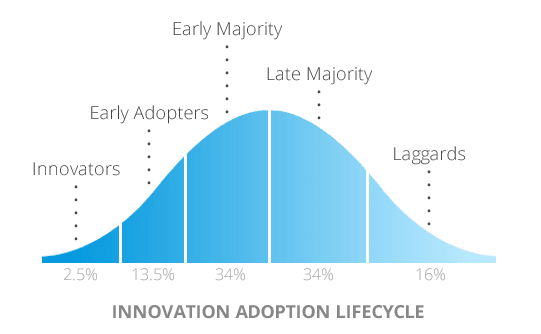Most software developers incline to overbuild their first product release, mostly out of fear. They fear that their initial product offering isn't enough to compel the users. However, as overbuilding cannot guarantee success, it can even lead to failure due to over-spent resources. Starting small with an MVP, a minimum viable product, on the other hand, will actually increase the chances of success. One of the major MVP benefits is that, while reducing costs, they improve the overall product quality and efficiency as well as customer relations.
Here are 5 compelling MVP benefits for software startups:
#1: Quick Development

The great thing about MVPs is that they allow you to put your product on the market sooner rather than later. As the name suggests, you’re supposed to develop a minimum set of features and deliver less functionality to the end-user. By focusing mostly on the core features of the product, the development time for the software is naturally reduced. And releasing a product swiftly on the market comes with many benefits.
The idea behind MVP launches is that sooner you hit the shelves, sooner you get to be exposed to the harsh realities of the market you try to get into and learn from them. So, you prevent any costly mistakes from happening by testing the real market demand for the solutions you are offering. You’re not aiming for perfection with an MVP. You, instead, try to figure out what core functionalities to propose to the customer and how you can develop them in a very rapid fashion. So that you keep up with the actual needs of your customers.
#2: Lower Development Costs

Having focused on the most vital features addressing directly a market problem not only minimizes delay for launch but also substantially reduces the development costs. MVP approach helps you keep things simple. So, you don’t tangle up in over-complicated coding and projects. That may cause you to overspend your budget in the start-up phase.
Keeping your initial offering as simple and minimal as possible leads up to incremental enhancements that are responsive only to the real market feedback. That means you only progress with the feature ideas validated in the marketplace. So, you don’t needlessly put yourself to invalidated expenses.
Also, fewer features to develop in a product means less testing and debugging the code written for the product. That, most certainly, reduces as well the overall expenses you’re to bear along the software development process.
#3: More Room for Improvement

Early adopters won’t be purchasing your software for the extensive features you roll out. They do so because you solve a particular problem they're facing. So, It forces you to carefully determine your value proposition before releasing your MVP to the market. That helps you set a clear target for your product and determine the right metrics while assessing your product idea on the market.
Staying focused on the core functionalities in the beginning also provides you more room for improvement with customer feedback. You can assess better whether an additional feature idea fits in with your original proposition, which is neatly predetermined in the early development process. And, due to the gradual nature of growth that comes with the minimum approach, you can adapt better to the ever-changing needs of customers and newer technological trends. That helps you keep your product relevant within the competitive landscape.
#4: Testing in the Field

As mentioned, one of the major MVP benefits is that it allows you to progress further with a product idea that you know people want rather than you think they want. That is because of the critical feedback you get to obtain from real-life users in the field during an MVP launch.
Such valuable feedback will let you know whether you’re on the right track of providing your users the right functionalities best serving their interests. If not, you can always take a step back to determine what needs to be changed about your product and, simply, pivot. Here’s a list of some of the big startup brands that had massively successful pivots, mostly for the flexibility that the minimum approach has to offer.
MVPs vs. Presales
If you’re still in the early production validation stage, though, building an MVP may not come in handy for you. Even that's an MVP, you’re still going to need to write codes and develop your software to a certain point to make it ready for an early use. But, allocating resources to a project without any validation can constitute a huge risk.
Instead, you might want to seek validation with a minimum economical viable offer, a MEVO. That is basically what you "pre-sell" to the prospective customer. A MEVO puts enough information together to help your audience gain interest in what you plan to create during a pre-sale launch. So that you can validate your early product ideas without allocating resources on a large scale. Here’s our previous post on how to pre-sell a software product before you even build it.
#5: Grow with Your Customers
Considering the innovation adaptation cycle, you must exclusively focus on early adopters while developing features for your minimum viable product.

Trying to address the all varying needs of the early or late majority of customers at once is likely to make concentration difficult on core functionalities you’re offering. Targeting directly at early adopters, on the other hand, will provide you refined feedback on additional features. Such feedbacks not only help you validate your product offering sooner, but also provide you a better-grounded product roadmap for future feature plans.
MVP Benefits
An MVP benefits your software business in many ways while releasing your first products.
Building any software product is costly, not only in terms of money, but also time and energy to produce. MVPs can help you start small with the minimum amount of time and financial investments to kickstart your up-and-coming software projects. MVPs by nature are less costly, easier to develop, and prone to be more innovative.
If you would like more information on software monetization, we have written these articles to help: